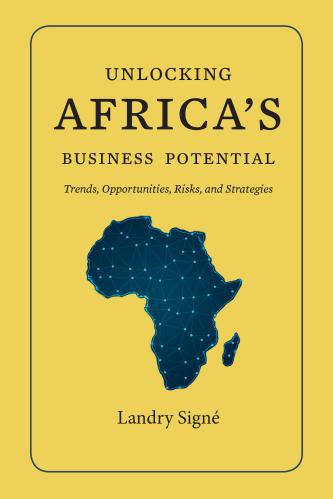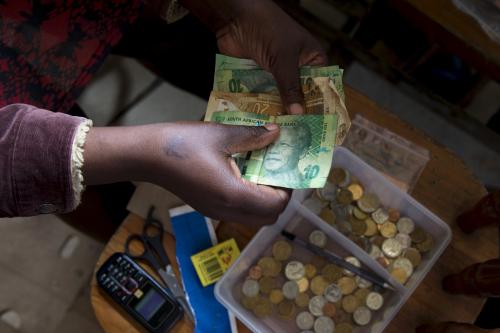On June 25, 2020, the Organization for Economic Cooperation and Development (OECD) Global Forum on Transparency and Exchange of Information for Tax Purposes released their annual report on tax transparency in Africa, “Tax Transparency in Africa 2020: Africa Initiative Progress Report 2019.” The report provides comparable statistics on tax transparency and the exchange of tax information between countries to help African countries better tackle tax evasion. It also assess progress on the Global Forum’s Africa Initiative, adopted in 2014 to improve transparency and exchange of information (EOI) in African countries, including by increasing the number of EOI partners—countries committed to working together to exchange information and tackle cross-border tax issues—in Africa.
The report states that, prior to the adoption of the Africa Initiative, there were few EOI partners in Africa. As a result, tax auditors were unable to properly investigate and assess the presence of tax fraud and tax evasion with transactions that occurred in a foreign country. However, the report also states that, since the creation and signing of the Multilateral Convention on Mutual Administrative Assistance in Tax Matters (MAC) in 2014 as part of the Africa Initiative, there has been significant growth in the number of EOI networks and partnerships, for example, the creation of 2,511 new EOI relationships since 2014 (Figure 1). This figure also shows the impact of the MAC on the number of EOI relationships created by African countries: Every year since 2014, countries that signed the MAC have had substantially more EOI relationships than those who did not.
Figure 1. Number of EOI relationships created by African countries since 2014
Note: MAC = Multilateral Convention on Mutual Administrative Assistance in Tax Matters. The graph reflects the situation for the 33 African countries that provided data as well as Egypt and Djibouti.
Source: OECD, “Tax Transparency in Africa 2020: Africa Initiative Progress Report 2019,” 2020. From responses provided to questionnaire by African countries and chart of jurisdictions participating in the Multilateral Convention.
Figure 1 also shows that African countries are increasingly participating in the Multilateral Convention, up from seven in 2014 to 18 in 2020. Notably, the report states that non-signatories of the MAC typically have fewer than 10 EOI partners; the only country that did not sign the Multilateral Convention but still has an extensive EOI network is Egypt, with over 50 EOI partners through bilateral agreements.
Figure 2 shows that, between 2014 and 2019, African countries have received a larger number of EOI requests—in which other countries and jurisdictions seek to gain tax informationthan they have sent out: According to the report, 1,024 EOI requests were sent by African countries during that time period, but 2,802 EOI requests were received by African countries. Notably, non-African developing countries send more EOI requests than they receive and have a much smaller gap between requests sent and received than African countries (Figure 2).
Indeed, the report authors argue that the pattern shown in Figure 2 arises due to the fact that many African countries lack adequate legal frameworks and technical implementation abilities for successfully adhering to the Global Forum’s standards for sending an EOI request. However, there is substantial heterogeneity across countries: For example, Mauritius, South Africa, and Tunisia have the highest EOI activity in Africa, being three of the top five countries receiving EOI requests, which all together represent 91 percent of total received requests in Africa. They also are three out of the top four countries in Africa having sent EOI requests (representing 74 percent of all outgoing requests in Africa).
According to the report, the increased EOI requests have translated into higher tax revenues: In 2019, five African countries—Burkina Faso, Kenya, Togo, Tunisia, and Uganda—identified nearly $12 million in additional tax revenue through EOI requests. To continue to build on these successes, the report highlights the need for greater efforts to be put in EOI operations as African countries lag in their potential in this regard.
Figure 2. EOI requests sent and received by African countries and developing countries since 2014
Note: The graphs reflect the situation for the 33 African countries that have provided data and the figures reported by Global Forum members through the 2019 Global Forum Survey (about 50 percent of all members have responded).
Source: OECD, “Tax Transparency in Africa 2020: Africa Initiative Progress Report 2019,” 2020. From responses provided to questionnaire by African countries and OECD, “Transparency and Exchange of Information for Tax Purposes: Multilateral Cooperation Changing the World, 10th anniversary report,” 2019.
For more on strategies for effective domestic resource mobilization, see “Mobilization of tax revenues in Africa: State of play and policy options” by Brahima S. Coulibaly and Dhruv Gandhi. For more on illicit financial flows, a key development issue addressed in part by tax transparency, see “Illicit financial flows in Africa: Drivers, destinations, and policy options” by Landry Signé, Mariama Sow, and Payce Madden. For more on tax transparency and governance, see “Does the threat of being blacklisted change behavior?” by Matthew Collin.
The Brookings Institution is committed to quality, independence, and impact.
We are supported by a diverse array of funders. In line with our values and policies, each Brookings publication represents the sole views of its author(s).











Commentary
Figures of the week: Improvement in tax transparency in Africa
July 2, 2020